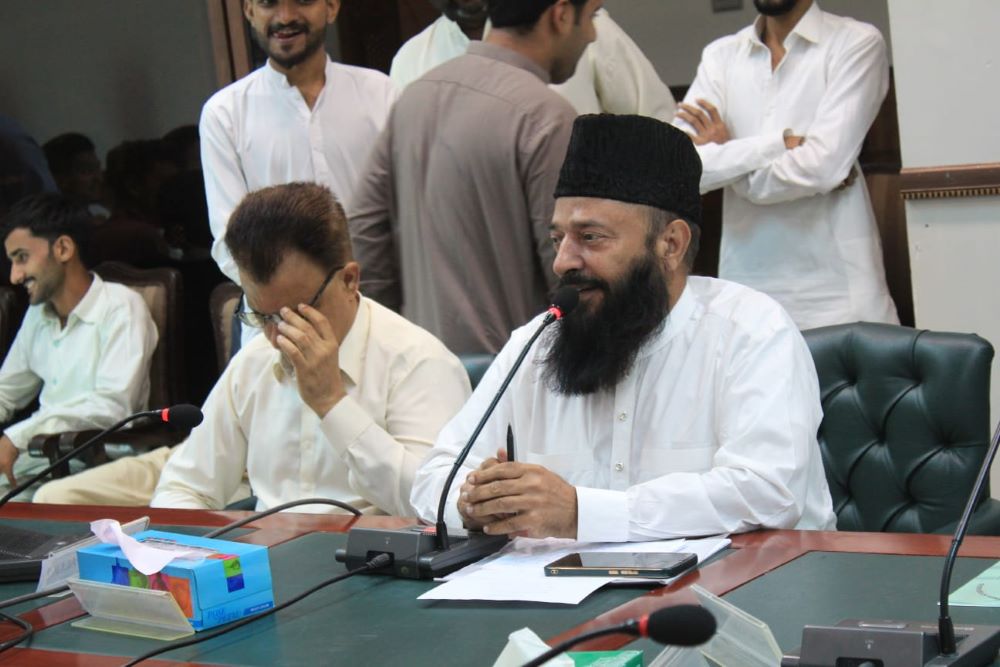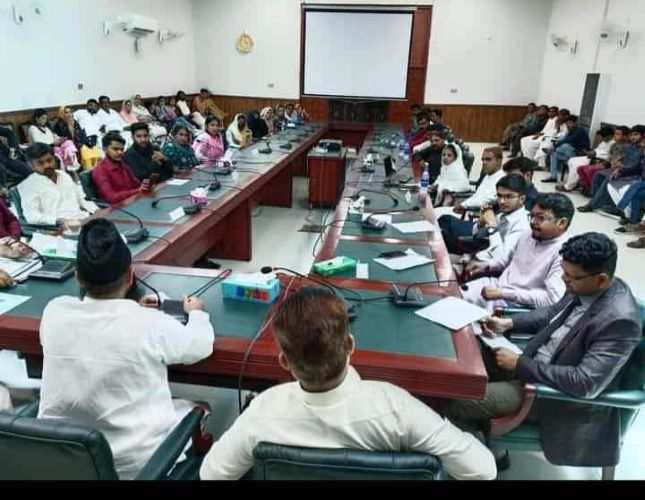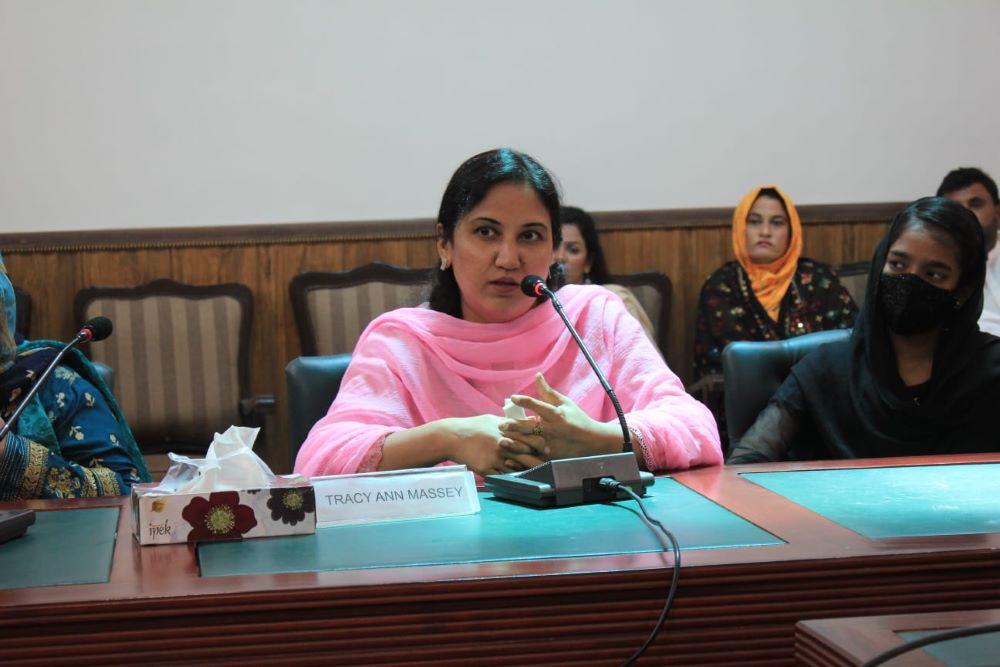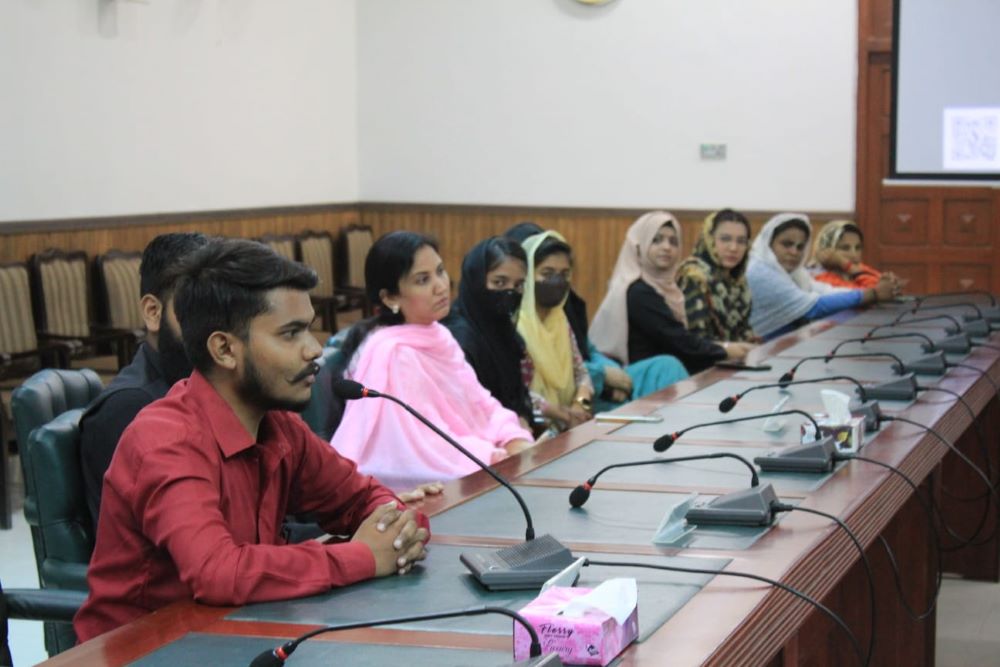
The rights situation, violations and the related laws were discussed in a conference organized by Youth Assembly for Human Rights in Hyderabad
Syeda Anmol Ali
Political and legal anthropological research on human rights is categorized according to its contributions to understanding four processes of law and rights: the pursuit of rights through legal means; appeals made by local actors for national and international involvement; the adoption of human rights concepts into local vernaculars.
The subject matter of anthropology as well as the fate of the cultures that we study compels anthropologists to address the theoretical and practical aspects of human rights. One by one, almost every culture in the world has found itself subjected to a redefinition and constriction of its rights.

Being a student of anthropology, keeping in view the above definitions of relevance between the anthropology and the human rights, I have been attending various events on human rights issues organized by the government as well as non-government organizations at different times.
One of such event – a conference, was held in Hyderabad Sindh on July 15, 2023 by Youth Assembly for Human Rights, a rights advocacy network, in collaboration with Human Rights Department of Sindh government.
The theme of the conference was ‘Human Rights of every society, for every gender, for every community and the role of government besides the participation of youth.’
 The main purpose of this conference was to inform the youth about human rights, and how the youth has to play a role in promoting and protecting the human rights and how to get the rights.
The main purpose of this conference was to inform the youth about human rights, and how the youth has to play a role in promoting and protecting the human rights and how to get the rights.
There were around thirty participants drawn from different communities including those described in Pakistan as the Minority Communities. Two guests were specially invited to share their views – Mr. Ayaz Latif Palijo, a politician, and Prof. Dr. Abdul Majid Mashrqi, a scholar.
At the outset, Mr. Arun Kagra, Coordinator Youth Assembly for Human, briefed the participants on aims, objects, and activities of their organization.
 Mr. Palijo explained the human rights in very interesting terms. He not only talked about human rights, but also about the rights of every living and non-living thing. “Even a table placed in the room has rights,” he had said elaborating the wide arena of human rights.
Mr. Palijo explained the human rights in very interesting terms. He not only talked about human rights, but also about the rights of every living and non-living thing. “Even a table placed in the room has rights,” he had said elaborating the wide arena of human rights.
He touched the most important issue of the present era – educating the girls. “If a girl wants to study, we stop her presenting various excuses and later at some stage compel her to get married,” he said.
“We neglect the fact that if the girl is educated, many good proposals will come for her,” Palijo said urging that a girl should be considered a human being and not a burden.
Dr. Abdul Majid Mashrqi spoke about human rights in the light of Islam. He said, “If Islam is to be understood properly, first of all one has to understand the Holy Quran, which is not only the Holy book but the first Charter of Humanity.”
He shared about a book ‘The Fragrance of Madina’, authored by him that contains all the information on human rights protected by Islam.
Ravi Valmiki, a participant belonging to a minority community, raised his voice for the rights of his community people. He said, “I am proud that I belong to a class that works to keep our country clean.”
Valmiki raised his voice against the persecution at the hands of the Brahmin caste. “The people should thank those who used to work in their houses and clean their filth,” he said.
He also spoke of every girl who is picked up from her home and later accused of being a stray woman.
 There were two more participants belonging to Christian community – the one was Tracy Ann and another Anas Elhai. They too had a major point for discussion that even with so much education they don’t get government jobs because the government has fixed a specific quota for minorities. “Out of fifty seats, only five seats are reserved for our community,” they told and urged to raise voice against this injustice. “Christians too are Pakistanis, and they should have the same rights in this country as everyone else.”
There were two more participants belonging to Christian community – the one was Tracy Ann and another Anas Elhai. They too had a major point for discussion that even with so much education they don’t get government jobs because the government has fixed a specific quota for minorities. “Out of fifty seats, only five seats are reserved for our community,” they told and urged to raise voice against this injustice. “Christians too are Pakistanis, and they should have the same rights in this country as everyone else.”
Amidst such discussion, I thought of the rights of a wife to discuss. “If a man imposes restrictions on wife, she also has the right to say no to her husband.”
I also talked about the carelessness of the university administration, as I had observed during the admission process, when many students were not able to get admission, because half of the merit-based seats are filled by the children of acquaintances and relatives. My demand was that justice should be done so that talent is not seen on the streets but in the institutions.
Ajay Kumar, Hasan Hyder Lodhi, Jamal Kumar, Waqar Shaikh, Athar Qaimkhani, Shiv Das, Agha Sharukh, Arshad, Allah Dino, Sikander Khushik, Amajad and Royail also took active part in the discussion.
They conference concluded with a decision that the NGO will consider the issues raised by all the people and extend support to them. It was suggested that CVs of all those who were rejected due to quota should also be sent to the NGO to get the issue resolved if they are eligible. NGO officials pledged that the efforts will be made to place all the scavengers and the girls who have been driven away from their homes in a respectable society.
At the end of the conference, all the speakers were awarded with certificates.
_________________
 Syeda Anmol Ali from Hyderabad is student of BS Anthropology at the Anthropology and Archaeology Department, university of Sindh, Jamshoro
Syeda Anmol Ali from Hyderabad is student of BS Anthropology at the Anthropology and Archaeology Department, university of Sindh, Jamshoro
[…] Also read: Anthropological Perspective of Human Rights […]